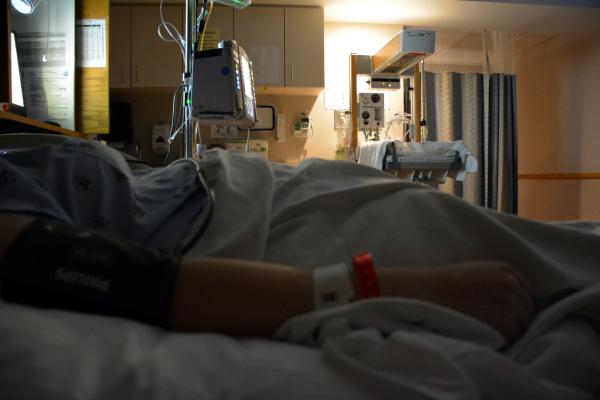A new study – one that fits in beautifully with other similar dog-bites-man stories – reveals that those sleeping in hospitals typically get less sleep than they would get otherwise at home.
Yawn.
But instead of seizing on its publication to criticize yet another study for wasting our time and belaboring the uber-obvious, here we're presented with an opportunity to help address the problem. And that can be done by family members using the findings to engage hospital personnel, in order to get their assistance in making sleep more of a priority for loved-ones under their care.
First, the study. It found that on average patients staying overnight slept 1 hour and 23 minutes less in a hospital bed, rather than their own, and were awakened in the morning an average of 44 minutes earlier. In addition, patients awoke an average of three times per night in the hospital, versus twice nightly at home. The research involved roughly 2,000 adults – half being more than 68 years old – who spent at least one night in one of 39 hospitals in the Netherlands. The age range of the patients was from 18 years to over 81, with 51.4 percent being male.
Now, anyone with a heartbeat can guess why patients lose sleep in a place teeming with interruptions and activity: machine-generated noises; administered tests; noises from roommate patients; inserted tubes creating an inability to change sleeping positions; lavatory trips; and, of course, pain. We certainly don't need a study to tell us that.
However, by cataloging the number of distractions and the total sleep time lost per night due to them, pro-active families can bring this study – which the authors describe as "the first, to our knowledge, to demonstrate compromised sleep quantity and quality in hospitalized patients" – to doctors, nurses other another hospital staff personnel to request that they do more to improve a patient's ability to sleep.
"All staff are so busy and so many things to get done," said Dr. Sharon Inouye from the Aging Brain Center at Hebrew SeniorLife, speaking to Reuters, "that minimizing awakenings for patients at night is not prioritized.” The Boston-based physician, whose editorial ran alongside the study in JAMA Internal Medicine, recommends that bedside family members speak up for patients.
“Stop waking patients up – give an uninterrupted period for sleep at night,” states Dr. Inouye. “This would have tremendous benefits.”
Adequate sleep has been shown time and time again to support overall health and well being, and it shouldn't be overlooked in a hospital setting.
The primary conclusion in the study, entitled "Quality and Quantity of Sleep and Factors Associated With Sleep Disturbance in Hospitalized Patients," was that it "demonstrated that the duration and quality of sleep in hospitalized patients were significantly affected and revealed many potentially modifiable hospital-related factors negatively associated with sleep. Raising awareness about the importance of adequate sleep in the vulnerable hospital population and introducing interventions to target sleep-disturbing factors may improve healing."
Researchers also learned that patients lost sleep due to another reason: worry. For instance, they worried about situations at home that were taking place beyond their control, whether that be circumstances involving an ailing partner or spouse, or not being able to leave the hospital in time for an important function or event. Moreover, patients generally kept those worries to themselves.
Lastly, the research on lost sleep raises the prospect of improving a patient's ability to snooze in a challenging hospital-room environment by employing a simple solution. Families should bring earplugs and sleep masks when visiting their loved-ones, so they can be offered in case they're needed.




